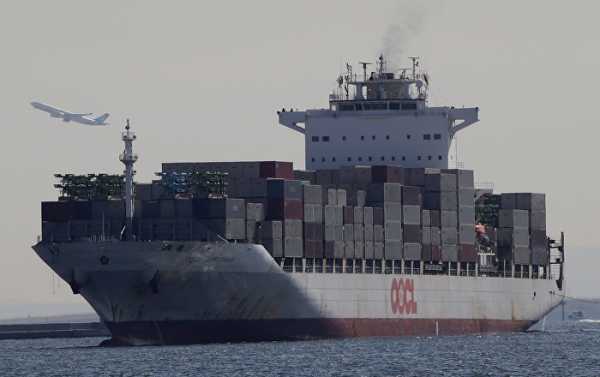
South Korea is facing accusations of undermining Japan’s trade secrets and leaking confidential information to the media following a failed attempt at bilateral talks to resolve mutual disagreements.
Kristian Rouz – Japan’s trade minister Hiroshige Seko has criticised his South Korean counterpart over what he calls an “erroneous” explanation of the result of a bilateral meeting that took place last week. Seko said the South Korean minister disclosed too much of the meeting – a statement that could exacerbate the already frosty relations between two major US allies in East Asia.
The Japanese and South Korean trade ministers met on Friday to discuss a possible agreement to amend Japan’s exports controls. The meeting was aimed at finding a solution to the trade dispute and alleviate international concerns of possible disruptions in the supply chain for microchips and smartphone displays.
Following the meeting, on Saturday the Korean minister said Seoul “clearly demanded Japan withdraw its trade restrictions at yesterday’s meeting, and there should be no disagreement over that matter with Japan”.
Tokyo, however, disputed this claim, and in his statement Tuesday, Seko said the sides had agreed what details of the meeting could and could not be disclosed to the media – an agreement the Korean official violated, according to the Japanese side.
Japan’s trade ministry said the conflict between the two nations revolves around its restrictions on the exports of certain materials used in hi-tech manufacturing. Japanese officials insist the South Korean side never asked Tokyo to lift the restrictions, and the Korean minister’s remarks were false.
The actual talking points of Friday’s meeting remain unclear.
Japan insists its recent ban on the export of three unspecified materials to South Korea pertains to the concerns of “inadequate management” of said materials by South Korea. Tokyo explicitly cited the considerations of national security as the main reason for such a ban – without providing details.
Some experts believe Japanese officials could be concerned about the close trade ties between South Korea and China, as well as the fact that many South Korean enterprises have manufacturing facilities in China. Analysts say sensitive Japanese materials could thus end up in China’s hands – which could eventually result in Japan losing its competitive edge in electronics manufacturing.
However, there is no hard data or evidence to back up such speculations.
Meanwhile, South Korean electronics giant Samsung is already preparing a contingency plan in case the trade spat with Japan deepens. Relations between the two nations have worsened over the past few years amid the disputes relating to the legacy of World War II, despite Seoul and Tokyo remaining close allies today.
Samsung’s de-facto CEO Lee Jay Yong gathered an emergency meeting of the company’s top management Sunday – just days after the collapsed meeting between the two ministers.
Reports claim Lee ordered his managers to find alternative sources of the three materials covered by Japan’s trade ban. South Korean media outlets have identified the compounds as fluorinated polyamide, resist, and hydrogen fluoride.
Experts say Japan’s restrictions could severely decimate the output of consumer-ready electronics by Samsung, as well as LG, and SK Hynix. Report says South Korea has already requested shipments of the necessary materials from Taiwan, China, and the US.
It’s not immediately clear if any of these countries will sell these crucial elements to their South Korean rivals.
Seko also said Japan’s trade restrictions do not violate the rules of international trade and are based on legitimate concerns backed up by evidence, which Tokyo could disclose to the WTO or any other third party should South Korea seek mediation in talks.
“The claim that our policies go against free trade is completely unfounded. If the topic is raised at the World Trade Organisation’s (WTO) general council, we will firmly explain Japan’s stance”, the Japanese minister said.
Seko’s hardline stance on South Korea does not appear to violate international law or trading rules – as national security concerns are administered by sovereign countries and do not require approval by international bodies.
The future of Japanese-South Korean trade relations remains up in the air unless both sides agree to advance talks as part of a broader effort to improve bilateral ties and avoid a bitter confrontation going forward.
Sourse: sputniknews.com






